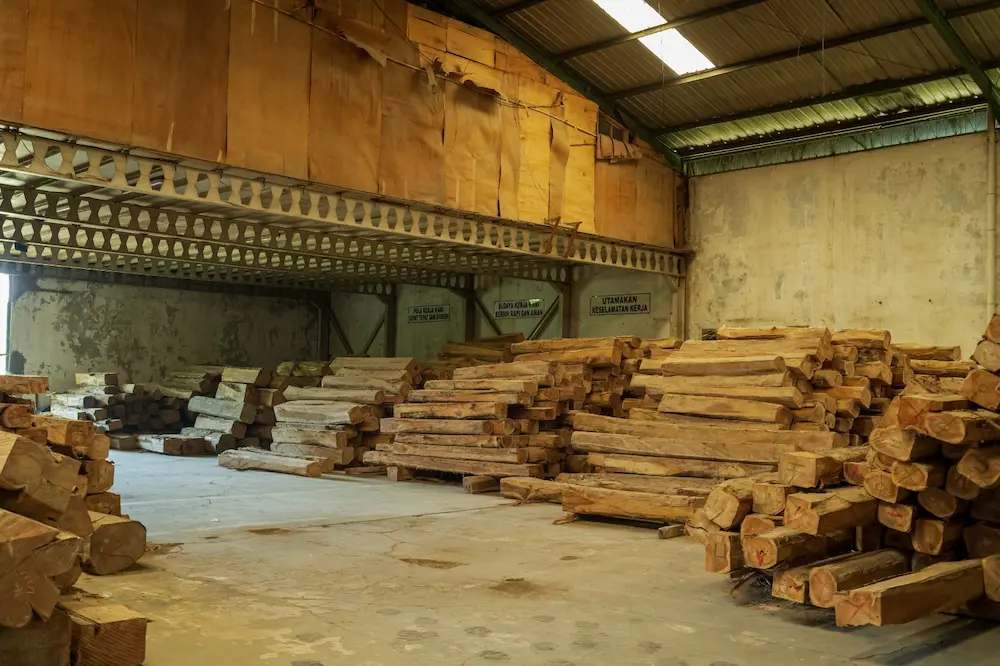Sustainable Teak Wood Forests in Java, Indonesia
Java, Indonesia, is renowned for its high-quality teak wood, a prized material in the global furniture industry. With its durability, resistance to pests, and beautiful grain patterns, teak has been a sought-after resource for centuries. However, the increasing demand for teak wood has raised concerns about deforestation and environmental sustainability. To address these challenges, Indonesia has implemented robust sustainable forestry practices, ensuring the long-term viability of its teak wood industry while preserving the natural ecosystem. These efforts are crucial for producing Indonesia Teak Wood Furniture, Teak Furniture Indonesia, and various high-quality furniture products.
The Role of Perhutani in Sustainable Teak Forestry
In Java, the state-owned company Perhutani (Perusahaan Umum Kehutanan Negara) plays a crucial role in managing teak forests sustainably. Perhutani oversees vast plantations, implementing strict reforestation policies and sustainable harvesting techniques. The company ensures that for every tree cut down, several new saplings are planted to maintain forest regeneration. This practice helps to balance the ecological impact of Teak Java Furniture extraction and supports long-term forest conservation, benefiting industries that produce Teak Wood Furniture, Solid Teak Furniture, and Laminated Teak Furniture.
Sustainable Harvesting and Reforestation

Sustainable teak forestry in Java follows a selective harvesting method, where only mature trees are felled while younger trees are allowed to grow. This approach not only maintains the ecological balance but also enhances the quality of the harvested teak wood. Additionally, controlled logging cycles are enforced, allowing forests to recover and regenerate naturally.
To further promote sustainability, community-based reforestation programs involve local farmers and indigenous communities. These initiatives provide employment opportunities while ensuring that forest resources are managed responsibly. By integrating traditional knowledge with modern forestry techniques, these programs contribute to both environmental and economic sustainability, supporting industries such as Indoor Teak Furniture, Outdoor Teak Furniture, Teak Garden Furniture, and Teak Outdoor Furniture.
Eco-Friendly Certification and Global Recognition
Indonesia’s commitment to sustainable teak forestry is reinforced through certification programs such as the Forest Stewardship Council (FSC) and the Indonesian Legal Wood Certification (SVLK). These certifications verify that teak wood products are sourced from responsibly managed forests, making them more attractive to eco-conscious consumers and international markets.
Certified sustainable teak wood has gained popularity among environmentally aware buyers who seek high-quality, ethically sourced furniture, including Teak Root Furniture, Teak Branch Furniture, Reclaimed Teak Furniture, Teak Contemporary Furniture, and Teak Colonial Furniture. This shift in consumer preference encourages more manufacturers to adopt sustainable sourcing practices, further driving the industry’s commitment to environmental conservation.
The Benefits of Sustainable Teak Forestry
The sustainable management of teak forests in Java provides numerous benefits, including:
- Environmental Conservation: Protecting biodiversity, reducing deforestation, and maintaining carbon sequestration.
- Economic Growth: Creating jobs and supporting local economies through responsible forestry practices.
- Long-Term Resource Availability: Ensuring a continuous supply of high-quality teak wood for future generations.
- Market Advantage: Enhancing the reputation of Indonesia Furniture, Teak Woods Furniture, and various Furniture Projects, such as Hotel Furniture Projects, Restaurant Furniture Projects, Cafe Furniture Projects, Hospital Furniture Projects, Bar Furniture Projects, and Home Furniture Projects.
Conclusion
Sustainable teak wood forestry in Java, Indonesia, is a model of responsible resource management. Through government oversight, selective harvesting, community involvement, and international certifications, Indonesia is ensuring that its teak industry remains environmentally viable and economically prosperous. As global demand for sustainable materials continues to rise, Java’s commitment to eco-friendly teak forestry sets a benchmark for the industry worldwide, benefiting sectors such as Teak Furniture Indonesia and Jepara Teak Furniture manufacturing.

